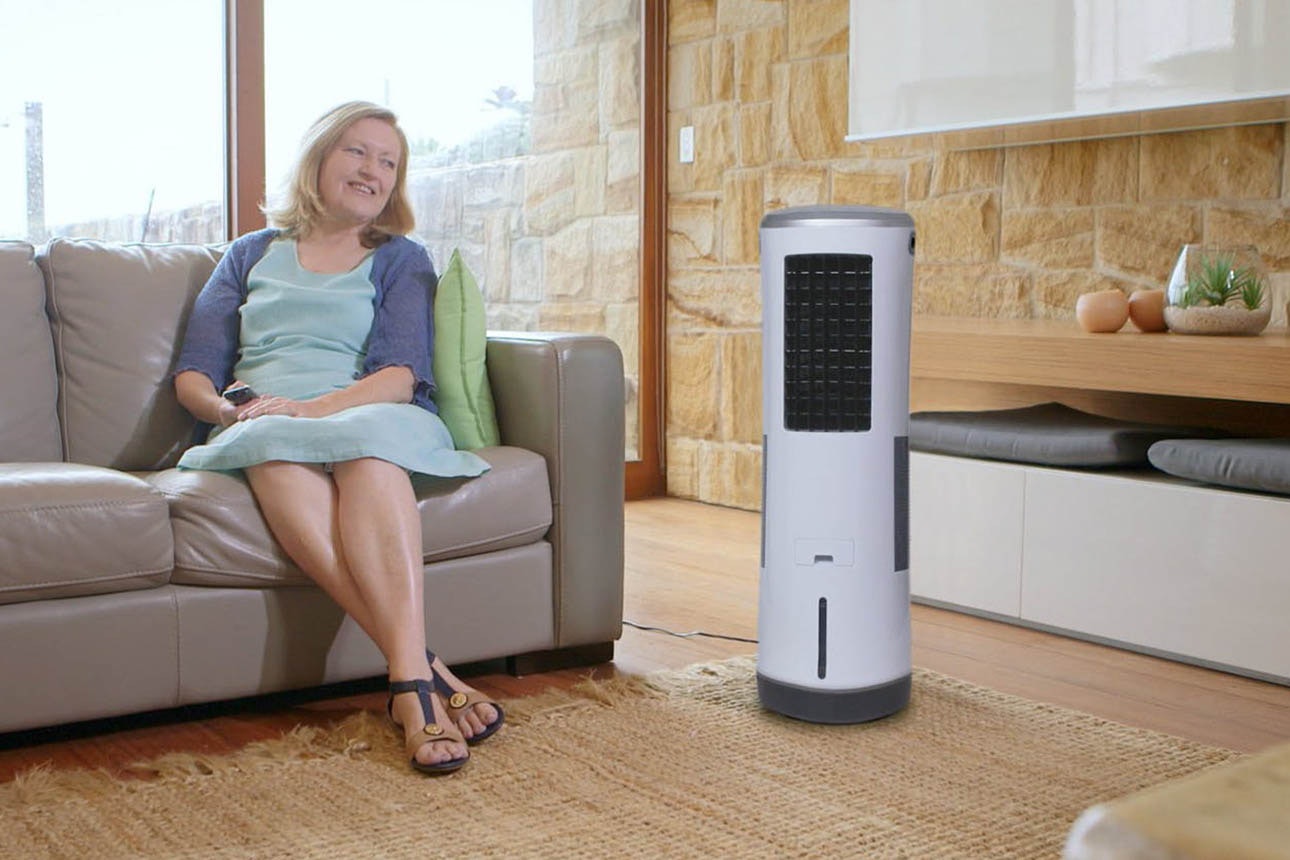
By Vanessa Pratley
Investigative Journalist | Kaipūrongo Whakatewhatewha
The owner of TV Shop describes itself as “Australasia’s largest direct response marketer.” It broadcasts over 5,000 advertisements a week and over 350,000 customers shop with it yearly, but it doesn’t operate any brick-and-mortar stores.
It means the only way you can get a hold of the Conrad Meier Fish Harvester, a “self-propelled watercraft” and TV Shop’s “secret to catching more fish,” is to buy it over the phone.
To the annoyance of many customers, you also have to call to find out the price of most of the products advertised by TV Shop.
One 3-star review on TV shop website reads, “I wish they would advertise the price, so I have an idea. I won’t phone when I don’t know the price because they rabbit on trying to convince you to buy…”
Another reviewer says, “I would like an idea of the cost before calling. Once you call you’ll be harassed into buying.”
We decided to ring TV shop to listen to the sales pitch for its TEBO bed and see how long it took to get a price.

The phone-call marketing pitch
TV Shop’s TEBO bed promises a fully remote-adjustable split mattress that could be a dream to sleep on. However, we didn’t count on the TEBO bed being a nightmare to get a price for.
After calling the number on the website, we were advised that a customer consultant would call us back with the price. We received another three calls before talking to someone who could tell us about the bed.
We explained we wanted the price for the queen-sized TEBO bed with vibrational therapy, and that’s when the sales pitch began.
The customer consultant weaved the sales pitch skilfully throughout the conversation, from the causes of a bad night’s sleep to the lauded benefits of vibrational therapy.
According to the consultant, not only could it fix our sleep patterns and give us a good night’s sleep, but it could also improve nerve pain and reduce our heavy use of painkillers. These aren’t trivial benefits by any stretch and could significantly improve our well-being. It almost sounded too good to be true (see “TV Shop’s TEBO bed claims”).
The consultant assured us that they had already done all the research. They claimed they had seen all the beds on the market, and the closest thing to the TEBO bed would cost upwards of $20,000. This didn’t include the additional system we would have to buy for the vibrational therapy, which could cost $10,000.
Yet when we had a look for ourselves, we found the comparable bed quoted isn’t even available for purchase in New Zealand, and the vibrational system they mentioned isn’t designed to be incorporated into a bed. A quick internet search shows a split-queen bed that has all the functionality of the TEBO bed for sale in New Zealand at just under $7,000.
Right before getting to the price, they revealed an incredible offer. A 30-day trial for $999. You don't get this trial cost refunded or deducted from the overall price if you decide to keep the bed. But, because TV Shop was the distributor, it could cut out the “middleman” and offer us the best price for a bed like the TEBO bed.
In the end, it would be over 20 minutes and three attempts at asking for the price before we got it. After spending that much time on the phone, people are more likely to follow through with purchases than to hang up. It’s called the sunk-cost fallacy, and it’s a nastily effective marketing technique.
The price of the bed was $10,989, including the trial cost, which you’ve got to pay upfront. The sales consultant told us payments are usually split over 10 monthly instalments of $999. We also received a special offer of paying over 20 months if 10 was too expensive.
Even though a business isn’t legally required to list pricing on its website, we think it sometimes allows TV Shop the opportunity to confuse and pressure consumers who enquire about price.
On its website, TV Shop explains it doesn’t advertise the price of most of its products because they fluctuate and are subject to special offers that also change. But if prices for fuel or groceries (products known for fluctuating in price) can be displayed, why won’t TV Shop display its prices? TV Shop wouldn’t respond to our requests for comment for this story.
We’re concerned that TV Shop’s opaque pricing allows it to sell products for drastically different prices with varying terms and conditions depending on who they’re talking to. We’re also worried customers who call up and invest time are more likely to buy.

TV Shop’s TEBO bed claims
We asked TV Shop to verify the claims it made about the TEBO bed.
Claim:
Whole Body Vibration therapy is an effective treatment.
Evidence:
• a study that researched the effect of vibrations on a small number of mice
• a study observed increased skin blood flow as a result of vibrational therapy, but the study was focused on the effect in ten people with diabetes only
• a university thesis with limitations that concluded the phenomenon needed to be studied further.
Claim:
The bed can reduce reliance on painkillers.
Evidence:
None provided.
Claim:
The bed can relieve pain.
Evidence:
None provided.
Claim:
The bed can increase blood flow and the amount of life-giving oxygen and nutrients in the body.
Evidence:
A study whose author had, at the time of writing, a patent pending for the use of vibration for therapeutic treatment.
Claim:
The bed can improve circulation.
Evidence:
A “paper,” also referred to as a “study”, that is actually an information brochure for a medical centre. The brochure does not reference the bed; instead, it says improved circulation is key to muscle and tissue repair.
Claim:
The bed can enhance peripheral circulation, which refers to the blood flow in the arms, hands, legs and feet.
Evidence:
• a link to a website describing what some people claim happens during vibrational therapy. Immediately before this description, a disclaimer reads, “more research is needed on the potential health benefits”
• a description of a single finding in a book that you have to pay for to independently verify.
Claim: The bed can help remove potentially harmful toxins that can accumulate due to poor microcirculation.
Evidence:
A study that proves harmful toxins can accumulate due to poor microcirculation rather than proof that the bed can remove them.
The evidence TV Shop gave us to back up its TEBO bed claims isn’t enough to convince us. Evidence is missing for some claims, like pain relief, and the evidence provided is problematic at times. It’s confusing at best and potentially misleading at worst.

The drawn-out returns process
What happens if you decide to buy something, but it’s not all it’s cracked up to be? TV Shop’s returns policy and money-back guarantee messaging may convince you it’s simple to return an item. We’ve heard the opposite.
In 2023, Divia* needed a vacuum that could tackle her big living room. After seeing TV Shop’s infomercial about its Invictus 9 vacuum, she decided to call up to find out more.
Divia said the person on the phone told her that the Invictus 9 was a multi-part vacuum. Divia just wanted a one-piece machine, and the person on the phone began telling her about the Invictus 1, a smaller demo vacuum cleaner.
“He assured me that it was appropriate for my big lounge,” she said.
Based on that assurance, Divia agreed to purchase the second vacuum.
It soon appeared on her doorstep, but there was no instruction manual leaving Divia in the dark about how to put it together. Aside from the manual, the vacuum charger and holder were also missing from the box. Divia said the box itself left a lot to be desired.
Unable to use the new cleaning tool, Divia waited a couple of weeks for the manual and other accessories to arrive. Once assembled, she realised there was no way the vacuum could handle her lounge.
“It wasn’t what the TV Shop led me to believe I was buying. I was led to believe I was buying a vacuum that could do my big lounge.”
Divia decided to return the vacuum. After all, it was still covered by TV Shop’s 30-day money-back guarantee, right?
Unfortunately, the 30-day money-back guarantee didn’t work the way Divia, and most customers, expect it to.
“If it’s not the right product, consumers have to return it at their own cost,” she said.
TV Shop writes in its FAQs that it’s the customer’s responsibility to pay for return shipping “if you decide not to keep it.”
Divia said she was told she would have to pay, but she didn’t just decide she didn’t want the vacuum.
Instead, she said she felt manipulated into buying something that wasn’t fit for purpose and that wasn’t delivered to her with all the parts required.
Over the course of her attempts to return the vacuum, Divia said she was threatened by debt collectors. In the end, returning it was more trouble than it was worth and she eventually gave up.
We think in cases like Divia’s it’s unfair to require customers to pay a fee to return a product, and TV Shop’s stance on paying for returns in some cases might risk misleading customers about their consumer rights.
The reviews
If you’re a savvy shopper, you might think to read the online reviews first. Reviews can be a handy way of gauging if it’s worth buying a product. But they’ve got to be trustworthy, and we’re not convinced TV Shop’s reviews are.
Reviews that potentially breach its review policy appear all across TV Shop’s brands, from reviews not related to the product in question to broken links and admissions by 5-star reviewers that they’ve never even tried the product.
Ultimately, a look at the 1-star reviews shows countless unhappy customers, and a quick search of TV Shop on Trustpilot reveals 1.5 stars after 69 reviews. Ouch.
What’s being done?
Divia is one of many consumers that’s found issues with TV Shop or its owner, Brand Developers, which also owns brands Thin Lizzy, The Renovator and Bambillo. The Commerce Commission (the Commission) has received 478 complaints about Brand Developers since January 6, 2012. That’s about three complaints a month for the last 10 years.
To date, the Commission has investigated conduct by Brand Developers on three separate occasions. In 2015, an investigation led to the company being fined $153,000 for misleading consumers about its Transforma Ladder.
Brand Developers claimed the multipurpose ladder had a certified load rating of 180kgs. In New Zealand, multipurpose ladders must comply with the Australian and New Zealand Standards for portable ladders. While the Transforma Ladder complied with parts of the standard, Brand Developers didn’t test it against all parts of the standard.
At the time, Commissioner Anna Rawlings said the misleading conduct created a safety risk for consumers.
“[Brand Developers] did not carry out the required testing to ensure the ladders were safe to use at that weight. And they weren’t.”
Brand Developers is currently advertising the Transforma Ladder as capable of holding a 1.5-tonne SUV.
In 2022, it was fined $123,500 for failing to comply with the Fair Trading Act’s extended warranty disclosure requirements.
Currently, the Commission has filed 13 charges against Brand Developers relating to potentially misleading conduct.
The Commission alleges Brand Developers has breached the Fair Trading Act by:
misleading consumers by having staff members post reviews about products and remove low-rating reviews
implying consumers weren’t entitled to any protections or remedies outside of their own terms and conditions
advertising its Air Roaster Pro alongside an accessory pack as a bonus or special when in fact the Air Roaster Pro was never sold without the accessory pack.
Brand Developers has also been the subject of at least 92 complaints since 2015 to the Advertising Standards Authority. This includes 10 not upheld complaints, 18 upheld or settled complaints, 61 no grounds to proceed decisions, two no further action decisions, and one withdrawn complaint.
TV Shop products we’ve tested or investigated
Over the years, Consumer NZ has taken a look at a few products from TV Shop.
Pain Erazor Pro: Only provided limited pain relief and malfunctioned at times, zapping our trialists.
iTread: Our trialists found it dangerous and difficult to use.
Handy Heater: Didn’t heat as advertised.
*Name changed to protect privacy.

We know your rights
Got a problem with a faulty product, received shoddy service or been misled by a retailer? Our expert advisers can provide clear, practical advice that you can trust.



